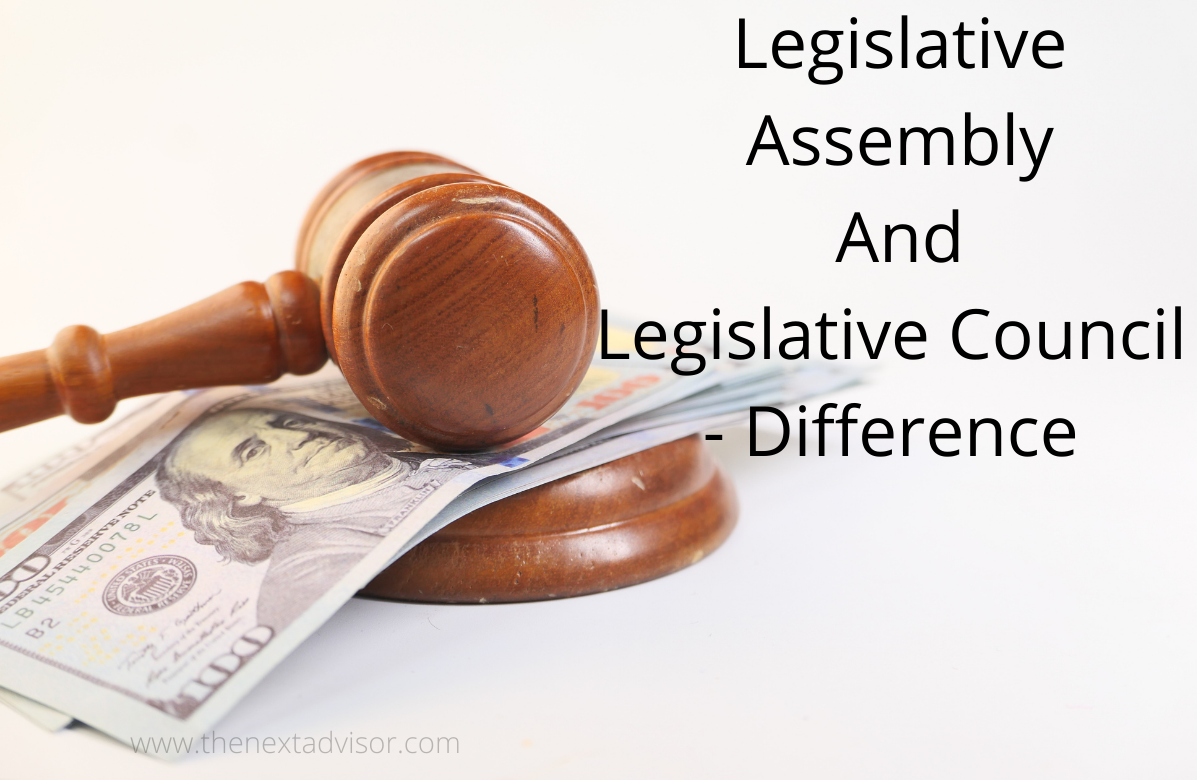Vidhan Sabha is known as Legislative assembly and Vidhan Parishan is known as Legislative Councill. Recently the West Bengal government has decided to set the legislative council in the State. And after that, these two terminologies are in veg. The law students and the citizen of India want to know What is the legislative council is and why it not has been established till this date in West Bengal or any other states in India. And interesters want to know the difference between Legislative Assembly and Legislative Council?
Let us see what these two terminologies (Legislative Assembly And Legislative Council) stand for? And what is the difference between Legislative Assembly And Legislative?
Difference between Legislative Assembly And Legislative Council
Recently the Government of West Bengal has decided to set up a Legislative Council which is known as Vidhan Parishad. To set up a Legislative Council a bill must be introduced in the Legislative Assembly, and then approval from the Governer is also needed. The Legislative Council of West Bengal was abolished in 1989.
In India, as you are all aware we have a bicameral form or system of Legislature. The Parliament of India has two houses – the Lok Sabha and Rajya Sabha. The states are also entitled to have a Legislative Council in addition to Legislative Assembly. This has been granted as per Article 169 of the Indian Constitution.
Article 169 of the Constitution-. Abolition or creation of Legislative Councils in States
(1) Notwithstanding anything in Article 168, Parliament may by law provide for the abolition of the Legislative Council of a State having such a Councilor for the creation of such a Council in a State having no such Council, if the Legislative Assembly of the State passes a resolution to that effect by a majority of the total membership of the Assembly and by a majority of not less than two-thirds of the members of the Assembly present and voting.
(2) Any law referred to in clause ( 1 ) shall contain such provisions for the amendment of this Constitution as may be necessary to give effect to the provisions of the law and may also contain such supplemental, incidental and consequential provisions as Parliament may deem necessary.
(3) No such law as aforesaid shall be deemed to be an amendment of this Constitution for the purposes of Article 368
Let us see What is the essential difference between the Legislative Assembly and Legislative Council?.
Legislative Assembly ( Vidhan Sabha ):-
-
The Legislative Assembly or Vidhan Sabha is the lower chamber in the legislature of the State.
-
The members of the Legislature Assembly are elected through Direct Elections.
-
The Legislative Assembly is a temporary body whose tenure is only Five years after which it is dissolved.
-
Speaker is the presiding officer of the Legislative Assembly.
-
It is present in all the states of India.
-
The maximum strength of the Vidhan Sabha is 500 members, and the minimum strength is 60 members.
-
To become a member of the Legislative Assembly one should have the age of 25 years.
Legislative Council (Vidhan Parishad):-
-
Like Rajya Sabha, Legislative Council is the upper house of the State Legislature.
-
Legislative Councils members are indirectly elected through a proportional representation system.
-
The Legislative Council is a permanent house that is never dissolved. It can only be abolished and one-third of members retire every 2 years.
-
Legislative Councils’ Chairman is the presiding officer of the Legislative Council.
-
Right now Legislative Council is only present in Andhra Pradesh, Bihar, Karnataka, Maharashtra, Telangana, and Uttar Pradesh and it is proposed in one or more states in India.
-
The maximum number of members of Vidhan Parishad cannot be more than one-third of the total number of members in the Legislative Assembly. The number of members should not be less than 40.
-
To become a member of the Legislative Council the minimum age is 30 years.
You should remember that Legislative Assembly And Legislative Council both are essential parts of the State Legislature which are headed by the governor of the State.

























